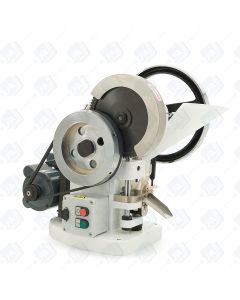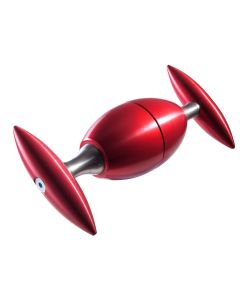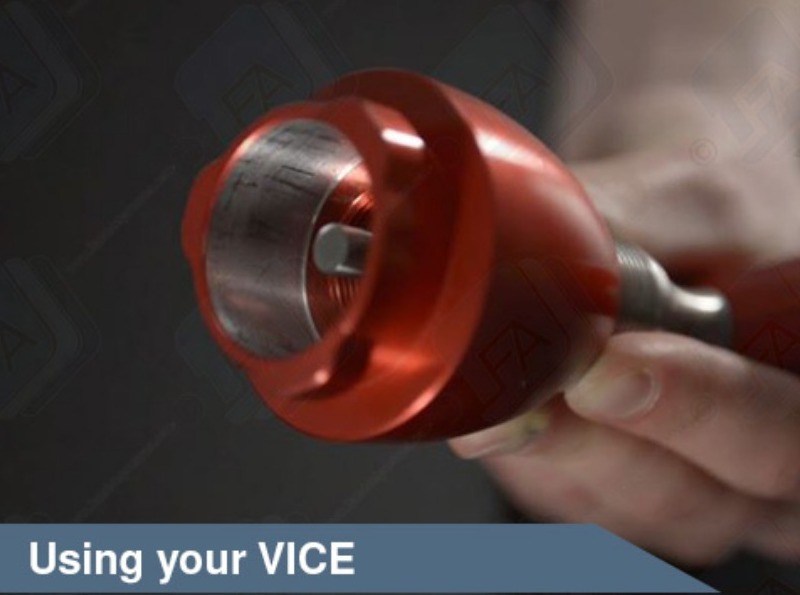Description: The term “Binding” is used when the tablet sticks to, takes hold or splits during the molding / pressing process.
Tablet Making Definitions
Listed below are some terms and their definitions that are commonly used in the tablet processing industry. Please feel free to contact us if you feel there is an item that should be added to the list.
Active / API / Active Pharmaceutical Ingredient
An active pharmaceutical ingredient is defined by the USA Federal Drug Agency as ‘any substance or mixture of substances intended to be used in the manufacture of a drug product and that, when used in the production of a drug, becomes an active ingredient in the drug product’.
The term API often refers also to the pharmaceutically active component in tablets. This could a pharmaceutical drug, vitamin, mineral, herbal extract or other supplement.
Sign Up to Our Newsletter
Capsule
In the pharmaceutical industry a capsule usually refers to a relatively stable shell that encloses a dose of active ingredients allowing them, for example, to be taken orally or to be used as suppositories.
The two main types of capsules are:
- Hard-shelled capsules, which are typically made using gelatine and contain dry, powdered ingredients or miniature pellets made by e.g. processes of extrusion or spheronisation. These capsules are made in two halves: a lower-diameter ‘body’ that is filled with the powder ingredients and which is then sealed using a higher-diameter ‘cap’.
- Soft-shelled capsules, primarily used for enclosing oils or active ingredients that are dissolved or suspended in oil.
Also see Softgel and Capsule Filler.
Capsule Filler
Hard capsules are by filled using a filling machine. These are available in three main forms:
- Manual (Hand held) Capsule Filling Machine
- Semi Automatic Capsule Filling Machine
- Automatic Capsule Filling Machine
In each case, the powder or formulation that contains active ingredients or the mixture of active ingredients combined with excipients are loded into the powder hopper of the filling machine. Capsules are filled by admitting powder from the hopper into the body of the capsule, with the aid of filling rings.
Die
See: Tooling
Dry Granulation
The dry granulation process is used to form granules without using a liquid solution because the product granulated may be sensitive to moisture and heat. Forming granules without moisture requires the compaction and densification of the powders. In this process the primary powder particles are aggregated under high pressure. A Sweying granulator or a high-shear mixer-granulator can be used for the dry granulation process.
Drying Oven
A drying oven is designed to remove moisture. Typical applications are in the pre-treating of powder formulations and curing of painted tablets. Such ovens are also sometimes known as kilns, though they do not reach the high temperatures employed in kilns for firing ceramic materials.
Ejection Height
The ejection height is the height to which the lower punch on a tablet press is lifted for the tablet to be ejected. This height can often be adjusted to account for different forms of tablet.
Fill Depth
The fill depth is the volume in the die that the powder can flow into on a tablet press. This volume can be controlled as part of the setting up procedure for the drill press, by adjusting how high or low the lower punch sits in the die during the fill step of the tabletting process.
Gelcap / Gel-Cap
See Capsule
Granulation
Granulation is the process making granules. It is specifically bringing together or aggregating powder particle by creating bonds between them. Bonds are formed by compression or by using a binding agent. If the particles of a powder are too small, they are very difficult to compress into tablet form. They would have to be compressed very slowly for a long period of time to make a worthwhile tablet. Unless the powdered is granulated, it could not efficiently be made into a tablet that has good tablet characteristics such as uniform content or consistent hardness. The granulation process combines powder particles to form larger granules that will allow the tableting process to be predictable and will produce quality tablets within the required tablet-press speed range.
– Also see: Wet Granulation, Dry Granulation and Granules.
Granules
A granule, in pharmaceutical usage, refers to a cluster of particles of medicinal powder or formulation that forms the basis for tablets. By themselves medicinal granules often have an unpleasant and bitter taste, making patients feel nauseous if taken in the powdered form. When the granules are compressed into a tablet or filled into a capsule these can be swallowed with the patient experiencing no effect of taste. This is beneficial as large quantities of the powder are often required even for a single dosage.
kiloNewton / kN
1 kiloNewton = 1000 Newtons. A Newton is a unit of force. It is defined as the force required to accelerate a mass of 1 kg at a constant 1 meter per second per second.
Pills
Pills can be defined as small spherical, cylindrical or oval shaped medicinal products that contain drug substances and are designed to be swallowed. Pills often contain fillers and excipients such as lactose that allows the pill to be formed in the desired shape manually or by machine operated equipment.
Punch
See: Tooling
Punch Pressure
The Punch Pressure of a tablet press is the amount of compressive force that is used to form the tablets. This is ajustable on most tablet presses. If the tablets are too soft, for example, the punch pressure can be increased to harden the tablet. On the other hand, if the machine keeps jamming it may be necessary to reduce the punch pressure.
Rotary Tablet Press
Most high speed tablet presses take the form of a rotating turret that holds any number of punches. This type of configuration is know as a rotary tablet press. As they rotate around the turret, the punches come into contact with cams which control the punch's vertical position. Punches and dies are usually custom made for each application, and can be made in a wide variety of sizes, shapes, and can be customized with manufacturer codes and scoring lines to make tablets easier to break. Depending on tablet size, shape, material, and press configuration, a typical modern press can produce from 250,000 to over 1,000,000 tablets an hour.
Single Station Tablet Press
The single station/single punch/eccentric press is a mechanical device which compresses the powder into tablets of uniform size with different shape and uniform weight. This compressing machine can be used to manufacture tablets of a wide variety of materials, including pharmaceuticals, cleaning products, and cosmetics.
It is the simplest machine that can be employed for the manufacture of tablets. A single station tablet press employs a single tooling station that is a die and a pair of lower and upper punches. In the single press the compression force is exerted by only the upper punch, the lower punch being stationary during the compression step.
Soft Gel
A softgel is an oral dosage form of medicine similar to a hard capsule. It consist of a gelatine-based shell surrounding a liquid fill. Softgel shells are usually formed by a combination of gelatin, water, opacifier and a plasticiser such as glycerin or sorbitol.
Tablets
Tablets are a type of solid dosage form of pharmaceutical material administered orally in order to deliver the drug substances directly inside the body with or without the need of any diluents. Tablets may come in different sizes, shapes and weights depending on the method of manufacture, an example of which are the compressed tablets.
Tooling
Tooling on a tablet press usually refers to the sets of punches and dies that enable a tablet to be pressed. On a tablet press the punches and dies can be changed to suit the type of product that is to be formed.
Punch: Unlike many industrial punches, tablet press punches generally have a concave tip in the shape of the desired tablet. Two punches (the upper and lower punches) slide vertically inside a die, and to form a tablet powder is loaded in the die above the lower punch. Tablet formation occurs when compressive force is applied to the powder between the two punches.
Die: A die is a specialized tool used in manufacturing industries to cut or shape material mostly using a press. Like moulds, dies are generally customized to the item they are used to create. Products made with dies range from simple paper clips to complex pieces used in advanced technology.
On a Rotary Tablet Press there are multiple punch and die sets while on a single station there is only one.
Wet Granulation
Traditional wet granulation is the process of mixing and adding solution to the powder formulation and then transferring the product to a tray dryer. Mixing of the granulation liquid to the powder can be achieved by using a high-shear mixer or granulator, a twin-screw granulator, or a fluidized bed granulator. The mixing, or agitation, along with the wetting of the components within the formulation results in the aggregation of the primary powder particles to produce wet granules. The granulation liquid (fluid) contains a solvent which must be volatile so that it can be removed by drying, and be non-toxic. Typical liquids include water, ethanol and isopropanol either alone or in combination. The liquid solution can be either aqueous based or solvent-based. Aqueous solutions have the advantage of being safer to deal with than solvents.









